Each fall and spring semester, USI faculty members from the College of Liberal Arts present individual public lectures featuring their current research.

Failure to Appear: A Poetry Reading
Dr. Rosalie Moffett
Assistant Professor of English
October 2022 - Video (Coming Soon)
The speaker in the collection Failure to Appear comes up against the erosion or warped manifestation of the American promise in poems that consider capitalism, consumerism, car lot inflatable bald eagles, mass shootings, the tentacular Amazon fulfillment center, Scrooge McDuck and Lucky Charms. These poems interrogate the nature of hope, what can be revered, and the limits and possibilities of the human.
Anticommunism as a Tool of Racist Oppression
Dr. Denise Lynn
Professor of History
September 2022 - Video (Coming Soon)
 Americans often equate anti-communism with Senator Joseph McCarthy who was a visible leader in anticommunist hearings from 1950 to 1954. Historians have recognized that anticommunism has operated as a tool of coercion and control since the end of the Civil War and it remains potent today. This presentation will look at the use of anticommunism to hinder the anti-Korean war movement and it argues that red baiting and framing calls for justice as communism has served (and continues to serve) powerful government and business interests to prevent social justice and justify war and imperialism. Anticommunism has been and remains a virulent strain in American political culture to the detriment of civil liberties and the free exercise of constitutional rights.
Americans often equate anti-communism with Senator Joseph McCarthy who was a visible leader in anticommunist hearings from 1950 to 1954. Historians have recognized that anticommunism has operated as a tool of coercion and control since the end of the Civil War and it remains potent today. This presentation will look at the use of anticommunism to hinder the anti-Korean war movement and it argues that red baiting and framing calls for justice as communism has served (and continues to serve) powerful government and business interests to prevent social justice and justify war and imperialism. Anticommunism has been and remains a virulent strain in American political culture to the detriment of civil liberties and the free exercise of constitutional rights.
Dr. Jason Callahan
Assistant Professor of Criminal Justice
April 2022 - Video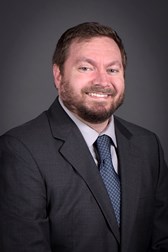 The 2020 publicized deaths of George Floyd and Breonna Taylor have increased social attention to incidents of police use of force in the United States. The spotlight of these events has created a divisive outlook on police tactics. Further, the current political climate has accentuated opposing viewpoints that highlight either the need for police reform or a steadfast stance on law and order. It is widely disputed whether heightened media reporting can influence individuals. This study uses historical tweets from the official Twitter handles of CNN and Fox News beginning March 25, 2020 and ending November 3, 2020. A content analysis of this sample was conducted to develop thematic messages from each news provider. Results indicate that both news sources use political ideologies to characterize the same reported events. CNN focused specifically on victimology while Fox News emphasized the lawlessness of citizen demonstrations. CNN coverage centers on public demonstrations and the need for criminal justice reform. Alternatively, FOX News coverage characterizes riots and the call for steadfast law enforcement efforts to maintain public safety.
The 2020 publicized deaths of George Floyd and Breonna Taylor have increased social attention to incidents of police use of force in the United States. The spotlight of these events has created a divisive outlook on police tactics. Further, the current political climate has accentuated opposing viewpoints that highlight either the need for police reform or a steadfast stance on law and order. It is widely disputed whether heightened media reporting can influence individuals. This study uses historical tweets from the official Twitter handles of CNN and Fox News beginning March 25, 2020 and ending November 3, 2020. A content analysis of this sample was conducted to develop thematic messages from each news provider. Results indicate that both news sources use political ideologies to characterize the same reported events. CNN focused specifically on victimology while Fox News emphasized the lawlessness of citizen demonstrations. CNN coverage centers on public demonstrations and the need for criminal justice reform. Alternatively, FOX News coverage characterizes riots and the call for steadfast law enforcement efforts to maintain public safety.
Dr. Rocco Gennaro
Professor of Philosophy
March 2022- Video
 I first review and discuss empirical evidence regarding the brain damage associated with some psychopathologies and cognitive deficits, such as hemispatial neglect, agnosias, schizophrenia, amnesia, somatoparaphrenia, and others. It becomes clear just how closely normal mental functioning and consciousness depends upon normal brain functioning. I then explore the implications of these results with respect to the nature of mind and consciousness. In particular, I examine the plausibility of materialism, roughly the view that mental processes are brain processes, in light of the evidence discussed and in contrast to a dualist conception of the mind (whereby mental states are not physical in some sense). I also then examine the prospect of a conscious afterlife. For example, if conscious mental states depend upon proper neural function, does it then stand to reason that all of one’s conscious mental activity ceases when all neural functioning ceases? It appears that an affirmative answer to this question is more plausible than the negative answer, although it may be impossible to know with certainty.
I first review and discuss empirical evidence regarding the brain damage associated with some psychopathologies and cognitive deficits, such as hemispatial neglect, agnosias, schizophrenia, amnesia, somatoparaphrenia, and others. It becomes clear just how closely normal mental functioning and consciousness depends upon normal brain functioning. I then explore the implications of these results with respect to the nature of mind and consciousness. In particular, I examine the plausibility of materialism, roughly the view that mental processes are brain processes, in light of the evidence discussed and in contrast to a dualist conception of the mind (whereby mental states are not physical in some sense). I also then examine the prospect of a conscious afterlife. For example, if conscious mental states depend upon proper neural function, does it then stand to reason that all of one’s conscious mental activity ceases when all neural functioning ceases? It appears that an affirmative answer to this question is more plausible than the negative answer, although it may be impossible to know with certainty.
Robert Dickes
Assistant Professor of Photography & Digital Imaging
February 2022- Video
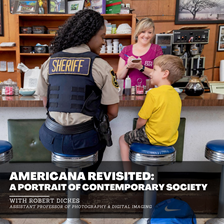 This work was inspired by the events of the Covid 19 pandemic, Black Lives Matter, the Presidential political race of 2020, and so many of the other events of 2019/2020. While in lockdown I was motivated by the work of Norman Rockwell and how he illustrated the idealism of American middleclass in the 1930’s -1970’s. Rockwell painted an image of the American middleclass that he saw. His utopian vision was featured on magazines as who we are and should strive to be. In my case, I want to look at what is the real modern-day America. Not with rose colored glasses, but with a sense of reality. My goal is not to politicize these issues, but to stand neutral and be observant to what I am seeing. Our country has turned so black and white that most people cannot see a contemporary issue without putting judgement upon it. Modern day Cancel Culture has pushed this to such extremes that just about everything is too controversial to have any kind of public discussion.
This work was inspired by the events of the Covid 19 pandemic, Black Lives Matter, the Presidential political race of 2020, and so many of the other events of 2019/2020. While in lockdown I was motivated by the work of Norman Rockwell and how he illustrated the idealism of American middleclass in the 1930’s -1970’s. Rockwell painted an image of the American middleclass that he saw. His utopian vision was featured on magazines as who we are and should strive to be. In my case, I want to look at what is the real modern-day America. Not with rose colored glasses, but with a sense of reality. My goal is not to politicize these issues, but to stand neutral and be observant to what I am seeing. Our country has turned so black and white that most people cannot see a contemporary issue without putting judgement upon it. Modern day Cancel Culture has pushed this to such extremes that just about everything is too controversial to have any kind of public discussion.
Dr. Urska Dobersek
Assistant Professor of Psychology
January 2022 - Video
According to the World Health Organization, mental illness is the leading cause of disability worldwide with over 500 million individuals suffering from depression or anxiety. Given that dietary intake is considered a major contributor to mental health, veganism and vegetarianism have become more prevalent as individuals seek to treat their mental disorders. Nevertheless, there is strong scientific evidence that restrictive dieting and omitting food groups impairs physical and mental health. Thus, the purpose of this talk is to present evidence showing that meat-avoidance is not an effective strategy to benefit physical or psychological health.
Dr. Laura Soderberg
Assistant Professor of English
November 2021 - Video
Nineteenth-century literature is full of supposedly bad children – juvenile delinquents, pathologized prodigies, runaway apprentices, and more – but it’s easy to miss them because their childhoods look so different than the conventional angelic child. Recognizing these children, though, gives us a better sense of how U.S. culture cast children as threats to the nation’s future, especially children of color, immigrant children, and disabled children. My work looks at how this range of dangerous childhoods hurt marginalized children, but it also considers how Black and Native authors imagined different, safer versions of what it meant to be a child.
Dr. Norma Rosas Mayén
Associate Professor of Spanish
October 2021 - Video
In the last decades, the study on Afro-Spanish varieties that developed during the Colonial period in the Americas have seduced many scholars. The analysis of these Afro-Hispanic speech patterns is crucial to determine their creolized or non-creolized status, as well as to understand why the scarcity of the Spanish based creoles in the Americas. The present study contributes to this linguistic field by analyzing the current speech of the Afro-Mexicans of the Costa Chica region, one of the largest Afro-Mexican enclaves, while proposing a Rhizomatic Linguist Model to interpret data derived from contact situations. The present investigation not only accounts for the Afro-Hispanic linguistic remnants of this Spanish variety, but also examines the current linguistic characteristics and sociolinguistic status of this speech area on the brink of extinction. In addition, this book advocates on behalf of those Costa Chica Afro-Mexican communities that have been stigmatized and customarily ignored in Mexico’s nation-state politics.
Dr. Caroline Jalain
Assistant Professor of Criminology
September 2021 - Video
Within the courtroom workgroup, prosecutors, along with judges, have a lot of discretion. From starting an investigation, to pressing charges, offering a plea deal, all the way through the sentencing phase, prosecutors participate in every phase of a criminal case. Unsurprisingly, with great autonomy and power come opportunities to abuse such power. This presentation will discuss the main prosecutorial ethics reforms of the past couple of decades and how they have influenced the commission of acts of misconduct by prosecutors.

"An Excellent House of Private Entertainment:" The Harmonist Tavern in New Harmony, 1815-1825
Dr. Michael Strezewski
Associate Professor of Anthropology
March 2021 - Video
Taverns were an essential institution in the frontier-era Midwest, providing food, drink, and sleeping quarters for travelers. Very little, however, has been written their operation, due mostly to a lack of primary documents. During the period 1815-1825, the Harmonists operated a tavern on the corner of Main and Tavern streets in New Harmony. Recent transcription and analysis of the Harmonist tavern daybooks has provided a glimpse into how this business operated and the types of alcohol that were popular among its patrons. While beer, hard cider, and wine were served at the tavern, sales of one drink in particular, whiskey, continued to climb through 1820. After this point, however, its sale was abruptly curtailed. Clues from Harmonist history provide a robust explanation for why the Harmonists chose to stop selling whiskey and other hard alcohol in their tavern.
A Medieval Mystery: The Old English Alliterative Verse
Dr. David O'Neil
Assistant Professor of English
February 2021 - Video
With the exception of modern free verse, most of the world’s poetry has been composed in meter. A poetic meter may require a particular number of syllables per line, particular sequences of light and heavy syllables, particular tonal sequences, or end-line patterns such as rhyme. Traditionally, these rules have determined what counts as poetry, and what doesn’t. In the early Middle Ages, all poetry, including well-known poems such as Beowulf, had to be written in a form known as the Old English alliterative meter. As the name suggests, the most obvious quality of the meter was mandatory alliteration in every line.
Here’s a three-line example from the first recorded poem in the history of the English language, Cædmon’s Hymn:
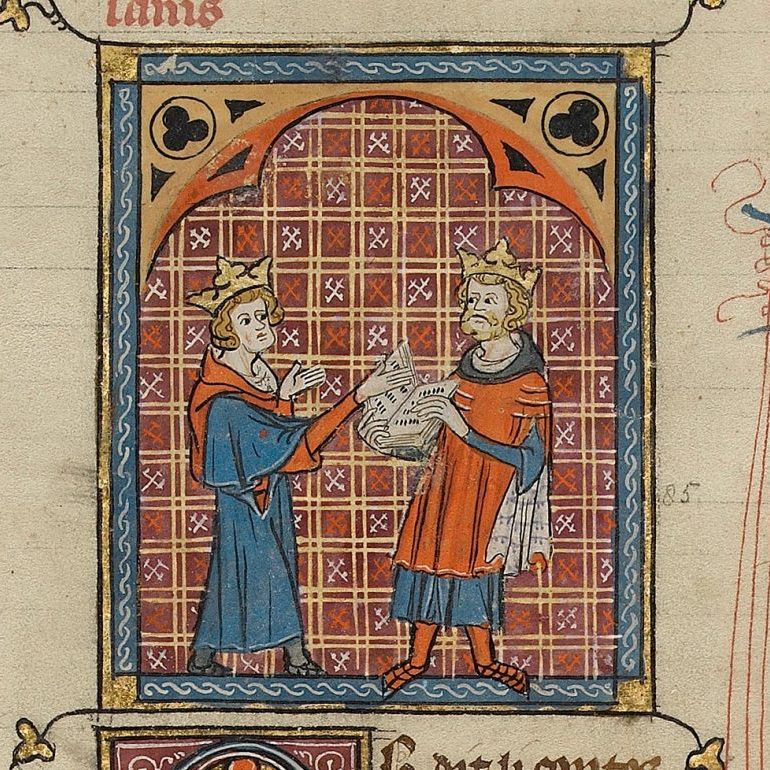 Nu sculon herigean heofonrices Weard,
Nu sculon herigean heofonrices Weard,
Meotedes meahte ond his modgeþanc,
weorc Wuldorfæder, swa he wundra gihwæs…
[translation: “Now we must praise the Guardian of heaven,
the Measurer’s might, and the thought of his mind,
the Glory-father’s work, as he for every wonder…”]
In addition to the poem’s alliteration, there were also apparent patterns of stressed and unstressed syllables. However, the exact nature of these patterns remains controversial. In this talk, Dr. O'Neil will delve into the mystery of the Old English alliterative verse, exploring some of the competing theories from the last 150 years. He also proposes an explanation for the decline and ultimate demise of the alliterative tradition, which was superseded in the late Middle Ages by a class of poetic meters that has dominated English language verse ever since.
 Pocahontas and Settler Memory in the Appalachian West and South
Pocahontas and Settler Memory in the Appalachian West and South
Dr. Kristalyn Shefveland
Associate Professor of History
January 2021 - Video
This presentation utilizes the Pocahontas coalfields in West Virginia and the Indian River Farms Company settlement of Vero Beach Florida as case studies of settler memory in two very different but connected Southern spaces that settlers considered frontiers as late as the nineteenth century. Both places constructed fantasies about Native peoples that promulgated enduring tropes that focus primarily on the idea of the Native woman Pocahontas.

Improving Students' Ability to Evaluate Arguments: What, How, & Why?
Dr. Sri Dandotkar
Assistant Professor of Psychology
December 2020 - Video
The ability to comprehend, evaluate, and produce arguments ⏤ argumentation ⏤ is an important skill that students need both to succeed in college and to actively participate in a democratic society. This presentation gives a brief account of what this skill entails, why it is important to address, and, more importantly, how to help students improve this skill. Within this context, I will reflect on various factors (Student-related, Text-related, & Context-related) pertinent to improving students’ argumentation skills that I have explored in my research, with emphasis on a specific student-related factor (epistemic beliefs) that I have been examining for the past four years.
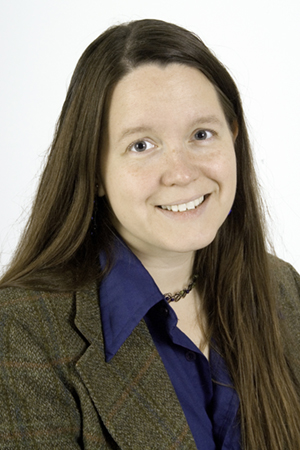
The Perils of Plastics: A Primer for Business Ethics
Dr. Mary Lyn Stoll
Associate Professor of Philosophy
November 2020 - Video
Thirty-two nations have instituted bans on single use plastic bags, yet, at current rates, the world’s oceans may well have more plastic than fish in them by 2050. Additionally, plastic pollution rates have increased even more in the midst of the pandemic. Present levels of plastics dumping into global ecosystems are clearly unsustainable.
To make matters worse, the global plastics industry is growing at a rapid pace, and so too the pollution that it generates. Half of all plastics ever produced were created in the past 15 years, and production is expected to grow as the oil industry shifts from providing for automobiles to focusing more on plastic. All too often, single use plastic is used in rich nations and then dumped as refuse in poor ones.
Stoll will examine how companies can take more proactive and systematic steps towards minimizing their role in the creation of plastic pollution. By taking comprehensive measures to address plastic as an environmental harm negatively impacting a wide range of stakeholders who could not in principle consent to the harms accrued, companies can begin to remedy and reform morally unjustified practices. As with any attempt to become more morally accountable in business practice, special care must be taken to avoid greenwash as well as measures that may be morally better in one way, but substantially morally worse in another.

Assessing Substance Abuse and Mental Health Needs in a Midwest County Jail
Dr. Laura Lutgen-Nieves
Assistant Professor of Criminal Justice
October 2 - Video
The presentation will center on Lutgen-Nieves’s work with the Vanderburgh County Sheriff's Office to assess the substance abuse and mental health treatment needs at the Vanderburgh County Jail (VCJ) in late fall 2019. Over the course of two months, Lutgen-Nieves and colleagues interviewed and administered surveys to more than 200 people held at VCJ. From their research they found a substantial and elevated need in the realms of both substance abuse and mental health. The presentation will cover the basis for this study, the study's methodology and findings, as well as policy implications, current ongoing projects with the jail and next steps.
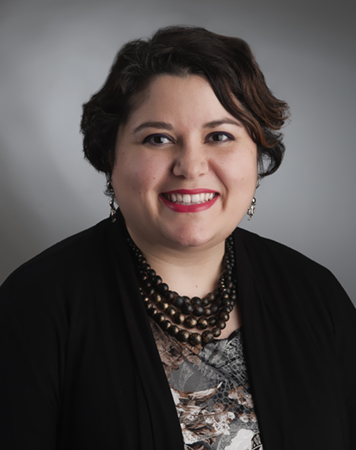
Adapting Historical Time and Place in Young Adult Novels
Dr. Amy L. Montz
Associate Professor of English
September 4 - Video
Jennifer Donnelly’s 2015 novel These Shallow Graves and Katherine Howe’s 2015 novel The Appearance of Annie Van Sinderen are both set in nineteenth-century New York (with Howe’s book spanning the 1830s and the 2010s) and both end with Author’s Notes or Acknowledgments that give credit to the Museums and Institutions of New York City for keeping the past alive.
Both authors, it seems, did excellent research into their subject matter, bringing the nineteenth century alive on the page. By refreshing this classic space, authors like Donnelly and Howe call attention to the significance of American history, and encourage their teen audiences to reclaim those spaces for cultural preservation.